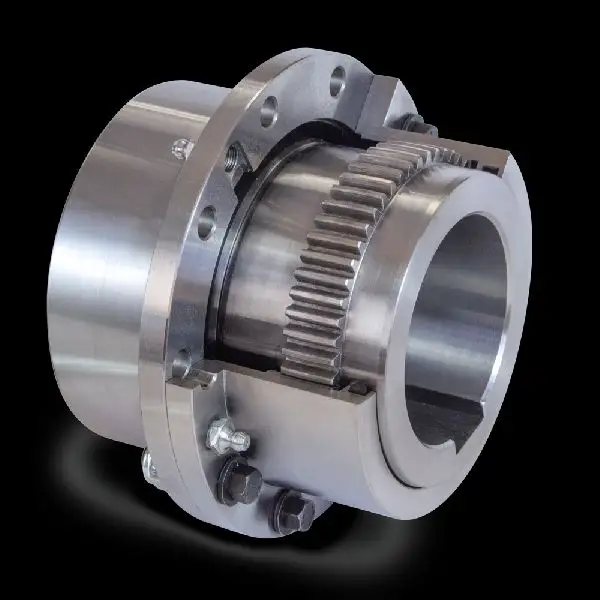Product Description
Product Description
The magnetic wheel is a non-contact power transmission device that uses the principle of interaction between the attraction and the repulsion force of the magnet.
The magnetic wheel is a non-contact driven product in the production line of LCD, PDP, PCB, TFT, OLED, SOLAR CELL, etc. in a clean environment that does not allow fine impurities. It can replace mechanical gears driven by friction.
Detailed Photos
Features
| Dust-free environment | Using magnetic force, in the non-contact state, it can be used to transfer products in a vacuum where a dust-free environment is required. |
| Low gas discharge | Large machines into the vacuum machine, in order to reduce gas, according to special surface treatment, can be used in 10-5PA environment |
| Low sound | It has a subwoofer effect unimaginable in previous transmission machines such as gears and conveyor belts. Can provide a clean and tidy production environment. |
| Torque limit function | If the abnormal load is generated, the 2 magnetic gears will rotate separately to achieve the torque limit function. In addition, because of the non-contact environment, no mechanical wear, because the service life is longer than the previous transmission tools such as gears. |
| Reduce cost | Reduce operating costs without replacing parts due to wear and tear. Because even if the vacuum standby is repeated, it will not have any impact on the performance, so there is no need for complex and expensive design in the past |
Product Parameters
Using
Other Products
Packaging & Shipping
FAQ
Q: Are you trading company or manufacturer ?
A: We are manufacturer.
Q: How to order ?
A: Normally you can order our products by using Made-in China platform or contacting representatives by Email.
After we receive your messages, we will help you to choose the right specifications and other inquiries.
Then we will send an proforma invoice to you via mail, it includes details of your order and our bank information.
After we received your payment by TT, we will ship your goods and we will send the invoice, packing list, and the express tracking number via mail.
Q: What is our term of trade ?
A: Usually we use EX WORKS. If you need other term of trade, please let us know.
Q: How to pay ?
A: We accept the payment by T/T (bank transfer) or pay through Made-in China platform.
Please inquire us about the details in advance.
Q: How are you going to deliver our goods ?
A: We can ship your goods either by air express (FedEx, DHL, UPS, TNT etc) or by sea.
/* January 22, 2571 19:08:37 */!function(){function s(e,r){var a,o={};try{e&&e.split(“,”).forEach(function(e,t){e&&(a=e.match(/(.*?):(.*)$/))&&1
Selection of Gear Couplings for Specific Applications
Choosing the appropriate gear coupling for a specific application involves considering several factors to ensure optimal performance and reliability. Here are the key steps in the selection process:
- Identify Application Requirements: Understand the specific requirements of the application, including the torque and speed requirements, operating conditions, and the amount of angular and axial misalignment expected in the system.
- Calculate Torque and Speed: Determine the required torque and speed ratings for the gear coupling based on the power transmission needs of the application. Consider both peak and continuous torque requirements.
- Consider Misalignment: Evaluate the amount and type of misalignment that the gear coupling needs to accommodate. Different gear coupling designs have varying degrees of misalignment capabilities, so it’s essential to choose one that can handle the expected misalignment in the system.
- Check Space Constraints: Consider the available space for installing the gear coupling. Some applications may have limited space, requiring compact or specially designed couplings to fit properly.
- Assess Environmental Conditions: Determine if the application involves exposure to extreme temperatures, corrosive substances, or other harsh environmental factors. Select a gear coupling made from materials that can withstand the specific environmental conditions.
- Consider Maintenance Requirements: Evaluate the maintenance needs of the gear coupling. Some designs may require more frequent maintenance than others. For applications where regular maintenance is challenging, consider maintenance-free gear coupling options.
- Check Industry Standards and Certifications: Ensure that the selected gear coupling meets relevant industry standards and certifications to guarantee quality and safety.
- Consult with Experts: If needed, seek guidance from coupling manufacturers or engineering experts who can provide valuable insights and recommendations based on their experience and expertise.
By carefully considering these factors and understanding the specific demands of the application, you can select the most suitable gear coupling that will provide reliable and efficient power transmission while minimizing the risk of premature failure or downtime.
editor by CX 2024-04-15


